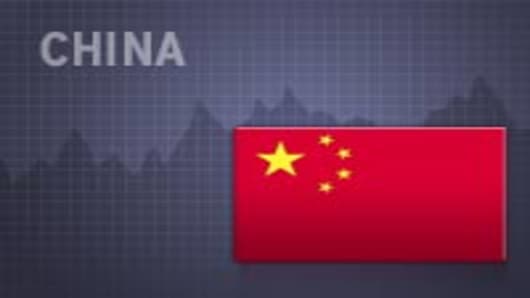China's producer prices jumped by 10.0 percent in the year to July, the first time factory-gate inflation has been in double digits since the mid-1990s.
The jump in the producer price index, up from June's reading of 8.8 percent, dwarfed market forecasts of a 9.1 percent increase and was the highest rate since 1996, according to the National Bureau of Statistics.
The government did not publish a monthly PPI until 2001. In 1995, factory gate inflation for the whole year was 14.9 percent.
The NBS attributed the lofty reading to high international energy and commodity prices -- which are now falling sharply -- as well as to increases at home in oil and electricity prices that are administered by the government.
Zhang Liqun, a senior researcher at the Development Research Centre, a cabinet think-tank, expressed confidence that price pressures at the wholesale level would not fuel consumer inflation.
"Currently aggregate demand has been growing in a stable manner. The relationship between supply and demand is fairly balanced and competition in the market for finished products is very tough," Zhang said in a commentary released by the NBS. "So it will be hard for factory-gate inflation, which is being driven up by resource costs, to pass through quickly to consumer prices," he said.
July's consumer price index, which has been falling from a 12-year peak of 8.7 percent scaled in February, will be released on Tuesday.
Yiping Huang, a Citigroup economist in Hong Kong, shares Zhang's optimism. "Our assessment is that the inflation rate remains high, but we are much less worried about the outlook. Inflation is coming off and oil prices are coming down," Huang said.
He noted that Beijing had already shifted its policy priority to supporting economic growth by increasing tax breaks for textile exporters, slowing the pace of the yuan's rise and relaxing credit controls.
Yet other economists were less sanguine.
Xing Zhiqiang with CICC Securities in Beijing estimated that higher oil and power prices contributed 0.5 to 1 percentage point to the increase in the PPI in July. Xing expects a lower rate of CPI inflation in July -- the rate was 7.1 percent in the year to June -- but said inflationary pressures were building in the pipeline.
"Producers' profit margins are being squeezed sharply. And even though tough market competition will delay the pass-through to retail prices, it will happen eventually," he said.
In the detail, food prices at the producer level rose 9.1 percent in the year to July, while the cost of raw materials, fuel and power leaped 15.4 percent.
The PPI in the first seven months of 2008 rose 8.0 percent from a year earlier.


